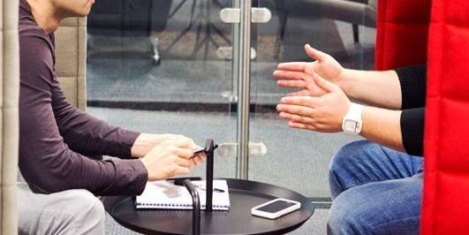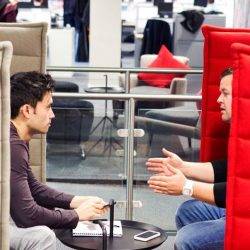September 20, 2017
Shocking level of dissatisfaction amongst workplace occupants, finds Leesman
 There is a shocking level of dissatisfaction among the workforce according to a new global report from Leesman, which looks at how a poorly planned workplace can have a negative impact on employees, and inhibit their ability to perform. The findings show that while employers continue to face economic uncertainty, many of their employees are having to endure workplaces that fail to support their basic working day, obstructing their ability to positively contribute to business success. ‘The Next 250k’, a global report based on the evaluation results from more than 250,000 employees across 2,200+ workplaces in 67 countries found that 43 percent of employees globally do not agree that their workplace enables them to work productively. In the UK, that figure jumps to 46 percent. Therefore, in line with ONS employment figures, for over 1.3 million UK workers, the office is simply not good enough.
There is a shocking level of dissatisfaction among the workforce according to a new global report from Leesman, which looks at how a poorly planned workplace can have a negative impact on employees, and inhibit their ability to perform. The findings show that while employers continue to face economic uncertainty, many of their employees are having to endure workplaces that fail to support their basic working day, obstructing their ability to positively contribute to business success. ‘The Next 250k’, a global report based on the evaluation results from more than 250,000 employees across 2,200+ workplaces in 67 countries found that 43 percent of employees globally do not agree that their workplace enables them to work productively. In the UK, that figure jumps to 46 percent. Therefore, in line with ONS employment figures, for over 1.3 million UK workers, the office is simply not good enough.






 A third of line managers have admitted they would struggle to identify mental health issues and a similar percentage wouldn’t know what to do if a team member had a mental health problem. This is according to new data from Bupa which argues that while mental health and wellbeing support in the workplace has significantly improved in recent years, and employer support is gaining attention with two in five managers being trained; line managers would still benefit from support and advice to identify mental health issues within their teams. These findings come at a time when NHS figures identify that almost a third of fit notes issued by GPs are for mental health problems – making it the most common reason for people to be signed off from work. Recognition of the role employer support plays in helping colleagues with mental health conditions is clear as two in five (41 percent) line managers have already received related training from their employer. And conversations around mental health at work are being reframed as more than a third (35 percent) of employees feel more comfortable talking to their manager about their mental health than before.
A third of line managers have admitted they would struggle to identify mental health issues and a similar percentage wouldn’t know what to do if a team member had a mental health problem. This is according to new data from Bupa which argues that while mental health and wellbeing support in the workplace has significantly improved in recent years, and employer support is gaining attention with two in five managers being trained; line managers would still benefit from support and advice to identify mental health issues within their teams. These findings come at a time when NHS figures identify that almost a third of fit notes issued by GPs are for mental health problems – making it the most common reason for people to be signed off from work. Recognition of the role employer support plays in helping colleagues with mental health conditions is clear as two in five (41 percent) line managers have already received related training from their employer. And conversations around mental health at work are being reframed as more than a third (35 percent) of employees feel more comfortable talking to their manager about their mental health than before.





















August 23, 2017
I’ve got some real estate here in my bag
by Paul Carder • Comment, Flexible working, Property, Technology
We’ll marry our fortunes together.
I’ve got some real estate
Here in my bag.
So we bought a pack of cigarettes,
And Mrs. Wagner’s pies,
And walked off
To look for America.
“Kathy”, I said,
As we boarded a Greyhound in Pittsburgh,
Michigan seems like a dream to me now.
(more…)